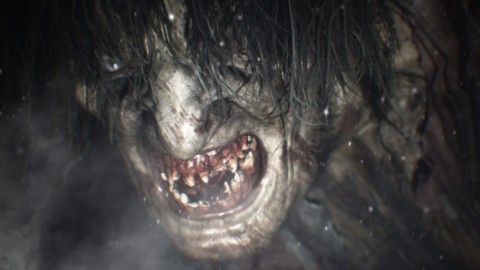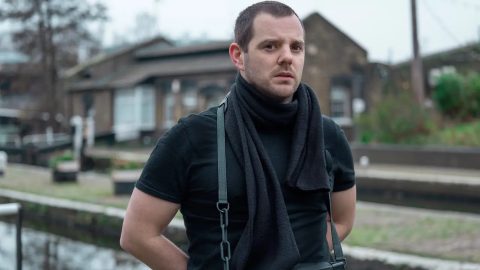
Special effects geek turned ad man turned music video pioneer, David Fincher had at least three different careers before he started making movies in the early 90s – but he brought all his past experiences with him when did, changing the way Hollywood films looked and felt forever.
Known for being a perfectionist (or a complete control freak, depending on who you ask…), Fincher spends years researching his films and even longer making them – famously putting his actors through up to 99 takes for single scenes. Often dark, usually cold, and always slavishly devoted to detail, Fincher has plenty of imitators, but no one does it quite like him.
As Mank hits Netflix and stirs up almost all the early Oscar buzz, it’s time to rank Fincher’s films from flawed to flawless.
Alien 3 (1992)
It’s the one Fincher doesn’t like to talk about (and the only one that he’s actively disowned) but the director’s first film is far from forgettable. Ranked alongside the other chapters in the series, Fincher’s Alien sequel actually stands up better than most – with an industrial punk aesthetic that came straight out of MTV and Sigourney Weaver’s best performance as Ripley. It’s a mess, for sure, but you can’t blame the guy dragged in at the last minute to try and rescue it. Saddled with someone else’s half-finished script and pressured into a ridiculous shooting schedule with near constant studio interference, it’s a testament to Fincher that the film came out half as good as it did.
One perfect moment: The xenomorph kissing Ripley – easily one of the best monster close-ups in horror.
The Girl With The Dragon Tattoo (2011)
American remakes of foreign films are almost always a bit pointless, and it’s a shame Fincher didn’t put so much of his time, skill and effort into making something original. Then again, his adaptation of Stieg Larsson’s Nordic potboiler is arguably better than Niels Arden Oplev’s 2009 TV film, and it’s hard to think of anything else being so perfectly suited to him. Monumentally grim and dense with detail, it’s a cold watch but it burns with great performances – not least Rooney Mara’s barbed take on Lisbeth Salander.
One perfect moment: The opening titles tell you everything you need to know – playing like a sick cyberpunk Bond movie to Karen O and Nine Inch Nail’s bruising cover of ‘The Immigrant Song’.
Gone Girl (2014)
A safer pair of hands could have turned Gillian Flynn’s watercooler novel into soap suds, but Fincher skilfully rebuilds it as a smart postmodern puzzle – leaning heavily into Hitchcock to make a stylish noir that takes fiendish pleasure in sweeping the legs out from under the audience. Becoming a completely different film around the halfway point, it stops being about Ben Affleck and picks up Rosamund Pike’s story instead, flipping any ideas we had about right and wrong and helping her give the performance of her career.
One perfect moment: The box cutter sex scene is pretty impossible to forget, but the best moment comes straight after it, when Pike instantly flips the switch from killer to victim.
Panic Room (2002)
The shadow of Alfred Hitchcock looms over Fincher’s whole career, but it’s never been larger than in Panic Room – the film Hitch surely would have made if he lived long enough to know what a panic room was. Set entirely in one house, it’s an experiment in old-fashioned stagecraft disguised as an impossibly tense cat and mouse thriller. Jodie Foster, Kristen Stewart and Forest Whitaker are all outstanding, but it’s Fincher’s claustrophobic camera moves that really work the room, with subtle CGI used to float seamlessly into every dark nook and cranny.
One perfect moment: That first impossible “unbroken” shot – through bannisters, keyholes, mug handles and floor cracks.
The Game (1997)
Easily Fincher’s most underrated film, The Game usually gets mistaken for any of the other dozen Michael Douglas thrillers made around the same time, or else ignored for its slightly over-complicated story. Unlock the puzzle box plot of twists and turns (fake real-life role-playing games made for millionaires and a murder mystery gone wrong) lies one of Fincher’s edgiest films – delving deep into urban paranoia and upending the traditional Hollywood whodunit with ’90s noir style.
One perfect moment: A taxi driven into the river, a panicked Michael Douglas, and one of the most chillingly realistic survival scenarios on film.
The Curious Case Of Benjamin Button (2008)
Look for a glimpse of human warmth in any of Fincher’s films and you’ll probably only find it here – causing a lot of critics to write Benjamin Button off as Fincher’s sappy slip-up. A film about a walnutty old/young man (Brad Pitt, wearing some pretty amazing digital makeup) who ages backwards until dies as a young/old baby, there’s a thin stream of existential horror flowing beneath all the sweetness and Fincher deliberately builds his magical American odyssey right on top of it. Deeply ambitious, and unexpectedly moving, Benjamin Button is Fincher at his most dazzling.
One perfect moment: Benjamin (Pitt) and Daisy (Cate Blanchett) meeting in the middle for the first, and last, time – briefly the right age for each other as they gaze into a ballet mirror.
Fight Club (1999)
It might be remembered for all the wrong reasons (toxic masculinity, Brad Pitt’s abs, and all those endless “the first rule…” jokes), but it’s hard to overestimate just how much of a culture shock Fight Club was at the time. Gut-punching Gen-X nihilism with the subtlety of a bank exploding in slow motion to the Pixies ‘Where Is My Mind’, Fincher’s film felt like all the hope and fears of an entire generation turned into one self-conscious sick joke. Fight Club isn’t about the plot twist, the violence, or the CGI gimmicks, it’s about the last time Hollywood dared to make a mainstream black comedy with this much wry contempt for its own audience.
One perfect moment: Edward Norton beating himself up – half deliberately clunky comment on white-collar wipe-out, half hilarious bit of physical comedy.
The Social Network (2010)
Pairing Fincher with an Aaron Sorkin script was a master stroke – bringing together two of Hollywood’s most frighteningly specific artists in a film that lives and breathes in the details. Jesse Eisenberg was perfectly cast as Facebook founder Mark Zuckerberg, following his ugly rise to superpower as he cast off his friends (and legal business partners) along the way. Sorkin’s script keeps things moving fast, but Fincher hangs the cubical atmosphere as heavy as possible – adding world-wide weight to every subtle twitch of regret in Eisenberg’s face. For a film about the pain and pressure of genius, it’s hard not to assume it’s more about the man who directed it than the kid it’s supposed to be about.
One perfect moment: The cruellest of breakups in one short barroom scene – one hell of a way to open a film.
Zodiac (2007)
Nothing makes Fincher happier than a big cardboard box full of paperwork. Burying himself in the real case files of San Francisco’s Zodiac killer, Fincher spent years researching the film – practically reopening the investigation himself by hiring forensic experts, interviewing family members and reanalysing closed court evidence. The result was one of the most exhaustive police procedurals ever made – a multi-layered labyrinth of detail that pushes pretence out of the way to find whatever kernel of truth might be hiding inside. Fincher would return to the evidence room again for Netflix’s Manhunter, but Zodiac remains his most grown-up work.
One perfect moment: A grim moment of realisation in a gloomy basement that suddenly makes all the horror feel real – the only time Fincher lets the pulse quicken.
Mank (2020)
Originally written by his dad, Jack, before he died in 2003, Mank has been the passion project of Fincher’s whole career. It’s a brave director who takes on Orson Welles – and a braver one still who takes aim at Citizen Kane – but Fincher does both at once by picking up the controversial backstory behind the greatest film ever made. Less a love letter to old Hollywood than a savage stab at the studio system, Fincher rips up the history books while still somehow slaving over authenticity, making a gorgeous black and white ode to troubled genius, classic cinema and the power of words.
One perfect moment: Mank’s election night bet – watching his face melt as painfully as the table ice sculpture.
Se7en (1995)
Equal parts detective thriller and social horror, Fincher’s masterpiece ran like clockwork to tick off whatever was left of the American century back in 1995 – a moody, unhappy, existential fable that rewrote the rules of the crime genre and picked up a generation of imitators. Still shocking that any Hollywood studio let Brad Pitt and Morgan Freeman be cast in anything quite so uncompromisingly bleak, Se7en was one of the highwater marks of ’90s American cinema and the crowning achievement of Fincher’s career.
One perfect moment: What’s in the box? We all know now, but the big reveal never stops chilling.
The post David Fincher’s best films ever – ranked appeared first on NME | Music, Film, TV, Gaming & Pop Culture News.







